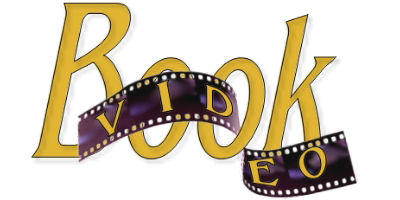
George Bryan Polivka was raised in the Chicago area, attended Bible college in Alabama, and ventured on to Europe where he studied under Francis Schaeffer at L’Abri Fellowship in Switzerland. He then returned to Alabama where he earned a bachelor’s degree in English literature from Birmingham-Southern College. While still in school, Bryan married Jeri, now his wife of 28 years. He was also offered a highly coveted internship at a local television station, which led him to his first career as an award-winning television producer. In 1984 Bryan moved with Jeri to Dallas, her hometown. There he won an Emmy for writing his documentary, “A Hard Road to Glory,” which detailed the difficult path African Americans traveled to achieve recognition through athletic success during times of racial prejudice and oppression. Seeing the rise of a new field in the intersection of technology and education, Bryan changed careers to become one of the pioneers of distance learning. He and his family eventually moved to the Baltimore area, where in 2001 he was honored by the U.S. Distance Learning Association for the most significant achievement by an individual in corporate e-Learning. Bryan and Jeri live in Maryland with their two teenage children. |
|
Previews of Literary Attractions |
 The Trophy Chase TrilogyBlaggard's Moon |
The term trailer, as applied to those flash floods of celluloid excitement that wash over us in the dark prior to the feature presentation, is already a misnomer. It doesn’t trail, rather it precedes. When Hollywood started making these advertisements for future productions a hundred years ago (yes!), they were stitched to the end of Saturday matinees. Moviegoers would watch a scene from next week’s episode, a literal cliffhanger moment, and be encouraged to come back next week to find out if the heroine escaped the clutches of the madman, or if she fell from the cliff into the rocky crags below. A century later, trailers are something much more—certainly an art form, arguably the highest impact three minutes you’ll find in any media. Each one is a mini-masterpiece of suspense, surprise, emotion, and sensory overload. Do these things work? No question. They generate emotion. They even create conversation (note that the stern demands for silence always come after the trailers!). Many viewers can’t help but comment aloud to their theater partners, “That looks great!” Maybe not many, but some. Okay, me at least. Now enter the “Book Trailer,” a term trademarked by Circle of Seven Productions, who created the concept in 2001. Like any trademark, this one will need a chance to build up equity over time. But as a descriptive term, it’s something of a failure. Like its fearsome forebear, it trails nothing. And it’s missing that one key ingredient that makes a trailer, in most people’s minds, a trailer . . . there’s no movie. Yes, a Book Trailer is a movie trailer without the movie. And one that will never see the inside of a movie theater. The YouTube, GodTube, WhateverTube technologies are its reason for being. It’s a true, proud child of the viral marketing movement, where savvy marketeers hope to get their ads passed along through e-mail and Facebook, watched on iPhones, blogged about, tagged, streamed, BitTorrented, Digged (Dugg?) . . . so that all the book buyers out there in the Long Tail of the Web 2.0 Internet are moved to buy. Do they work? The jury, alas, is still out. But hey, you’re the jury. I am neither judge nor counsel nor defendant nor prosecutor, but rather a highly interested, involved third party rooting heavily for the defendant. Okay, there you have it. You’re the jury . . . what’s your reaction? Do the trailers make you want to read the books? Those who’ve read the books all seem to really like the Trophy Chase trailer. But what effect will it have on those who see the trailer first and then read the books? And what about the potential for an actual movie someday . . . do the trailers make you want to see a movie made from the book, or not? It took a hundred years for the movie trailer to reach this level of sophistication and effectiveness. Even after thirty or forty years, movie trailers were hardly better than the old TV ads for Alpo (“Thrill to the exciting camel chase across desert sands!”). I’m just glad to be part of the process, part of the learning, and I am very grateful to Harvest House for expending the effort, time, and cost to make them. I hereby provide Exhibits A and B for your perusal: |







